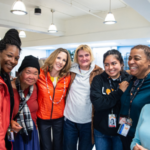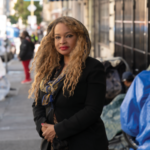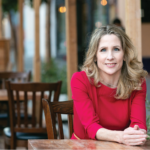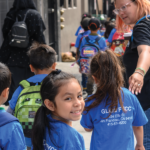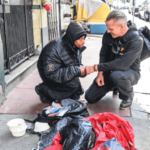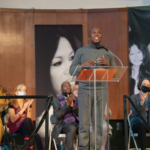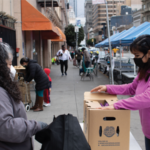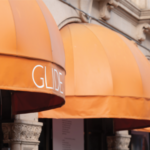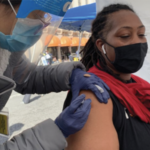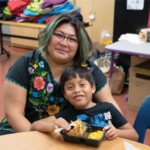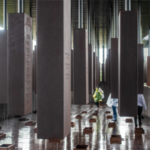GLIDE’s Center for Social Justice Drives Bold Systemic Change
GLIDE’s Center for Social Justice Drives Bold Systemic Change
2021 was a momentous year for San Francisco – and the nation – as we continued to collectively reckon with racial and social inequities, laid bare by the COVID-19 pandemic and deepening political divides. The transformative work of GLIDE’s Center for Social Justice (CSJ) has never been more important and necessary, and in the past year, the Center continued to evolve, expand, and innovate. “We aren’t just going to see the light in these dark times,” says CSJ’s Senior Director Miguel Bustos, “We’re going to be the light. This is what drives our work.”
At GLIDE, we know that changing systems of oppression requires a holistic lens. CSJ is doing this critical work using a multi-pronged approach of grassroots organizing, education, thought leadership, convening, policy development, and advocacy to influence public policy and change perceptions around poverty and discrimination. Read about some of the work that the Center accomplished in the past year:
Through policy advocacy, the Center for Social Justice helped realize the Universal School Meals Program, a landmark $650 million state measure that provides free breakfast and lunch every day for all K-12 public school students.
Policy and Advocacy
Food Insecurity
GLIDE won crucial local and state legislative victories in 2020-21 in the issue areas of housing and homelessness; racial justice and reconciliation; women and families of color; and community health. Through policy advocacy as a member of the California Hunger Action Coalition (CHAC), CSJ helped secure historic investments by the state in programs that ameliorate food access for children, seniors, and families. This included helping to realize the Universal School Meals Program, a landmark $650 million state measure that provides free breakfast and lunch every day for all K-12 California public school students which began with the 2022-23 fiscal year.
In 2022, CHAC is organizing and advocating for expanded access to the state-funded California Food Assistance Program (CFAP), which currently provides food assistance to qualified immigrants who are otherwise ineligible for federal benefits. GLIDE’s CSJ is working with CHAC to secure permanent funding to provide CFAP benefits to all Californians ages 55 and over, regardless of their immigration status.
SB 464 – the Food For All Act, authored by Senator Melissa Hurtado – will ensure that CFAP no longer discriminates on the basis of immigration status. Immigrants comprise 36% of California’s essential workforce, including over 1.2 million undocumented Californians working frontline jobs. Food4All represents a critical step toward an equitable nutrition safety net. GLIDE will continue to work with the Newsom administration, fellow advocates, and community members to ensure that immigrant Californians have consistent access to the food they need.
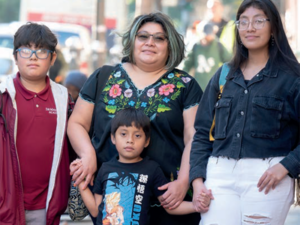
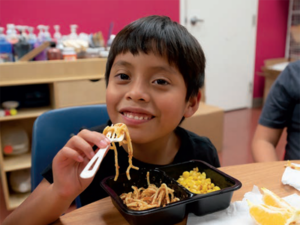
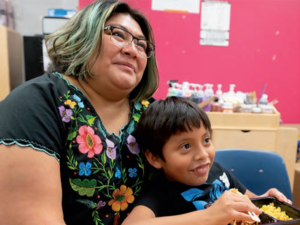
Nob Hill, just north of the Tenderloin District, is known for its luxury hotels and historic mansions. But it’s also home to immigrant families who struggle to make a living—especially during the COVID-19 pandemic.
Among them are Deysi and her husband, who immigrated from Mexico, and their three children: Estefani, Oliver and 6-year-old Derek. “GLIDE has given us a lot of support,” Deysi says. “When Derek was a baby, I’d take him to GLIDE’s program for parents with little kids. The people there would sing and read books to the children and teach us skills for raising our kids.” The whole family would turn out for special events at GLIDE. “At the Christmas celebration, the children received gifts of toys. This was very exciting for them.”
At the start of the pandemic, Deysi and her husband lost their jobs; her husband just recently found work again. The family’s situation was precarious, but GLIDE provided a safety net. Deysi would pick up produce on Tuesdays from the Zero-Waste Food Pantry and received financial help with buying additional groceries. “GLIDE even had programs to help you deal with all the stress and worry during the pandemic,” she says.
Derek now attends the afterschool program at GLIDE in addition to elementary school on Nob Hill. In the 2022-23 year, thanks in part to GLIDE, he’ll enjoy a new source of nutritious food: California’s Universal School Meals Program, which guarantees free breakfasts and lunches for all public schoolchildren. This groundbreaking program was funded by the state in response to an advocacy campaign GLIDE’s Center for Social Justice helped organize. Deysi says, “It takes a weight off my shoulders to know that no matter what happens, he’ll get something to eat at school.”
Community Health: Overdose Prevention Programs
San Francisco and communities across the country have been struggling with an alarming rise in drug overdose deaths. Tragically, during the COVID-19 pandemic, the situation worsened, and the need for associated services has amplified. More than 1350 people have died of overdose in San Francisco since the beginning of 2020 – nearly twice the number of people who died of COVID-19.
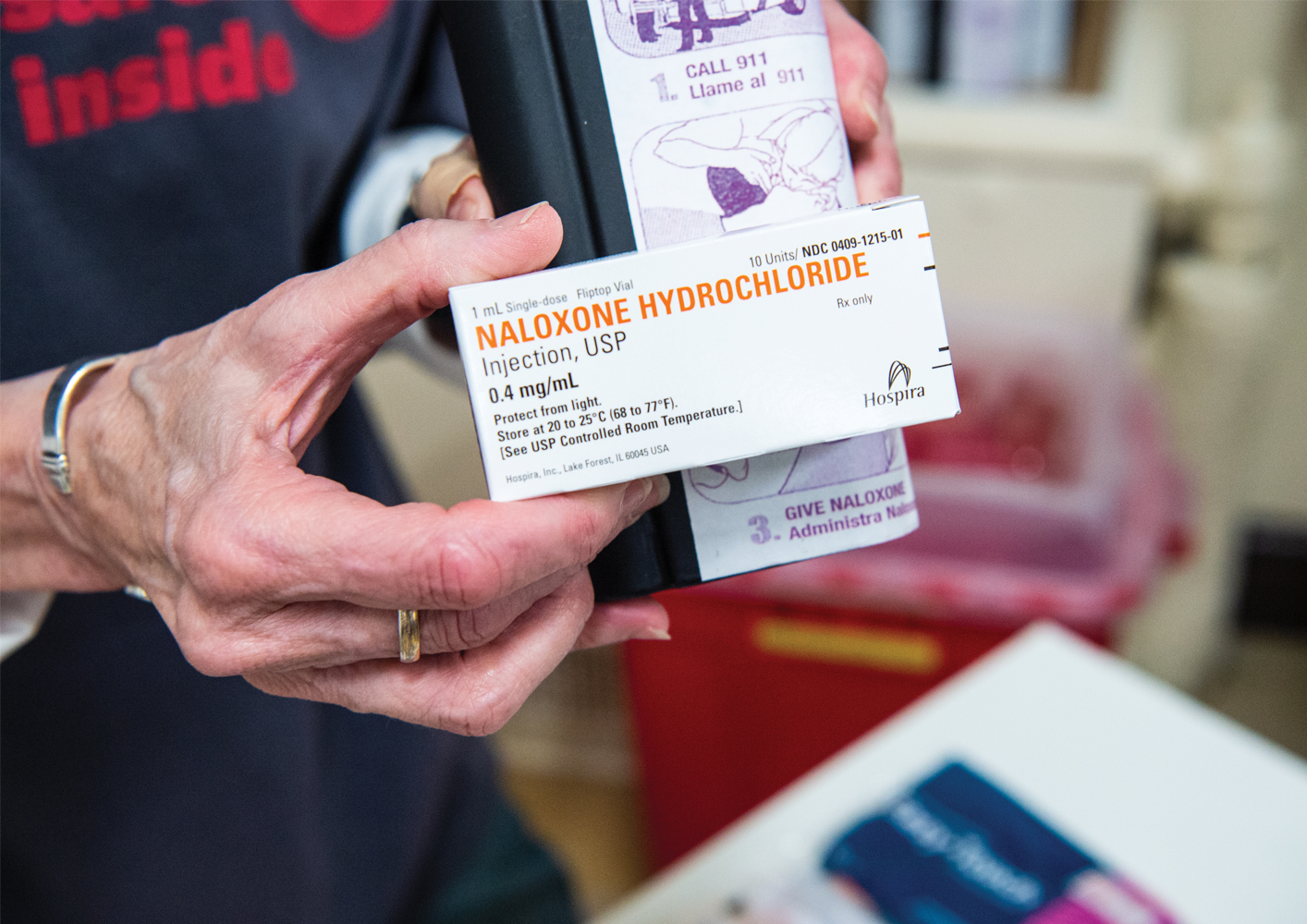
As an important step to addressing the crisis, advocates and constituencies such as the Safer Inside Coalition, of which GLIDE has been a member since 2015, are urging San Francisco and the state of California to implement overdose prevention sites to scale, also known as supervised consumption sites.
As a member of the Safer Inside Coalition, GLIDE supports overdose prevention programs, because they are a humane, dignified, and compassionate approach to improving the health and safety of people who use drugs and are essential to creating a healthier San Francisco. Overdose prevention sites allow people who use drugs to do so in a safe and clean space, be treated with dignity and respect, and access supportive services and treatment options that can open pathways to health, while reducing the traumas associated with public use. They have been in successful operation around the world for several decades, and there has never been a death from overdose in any such site.
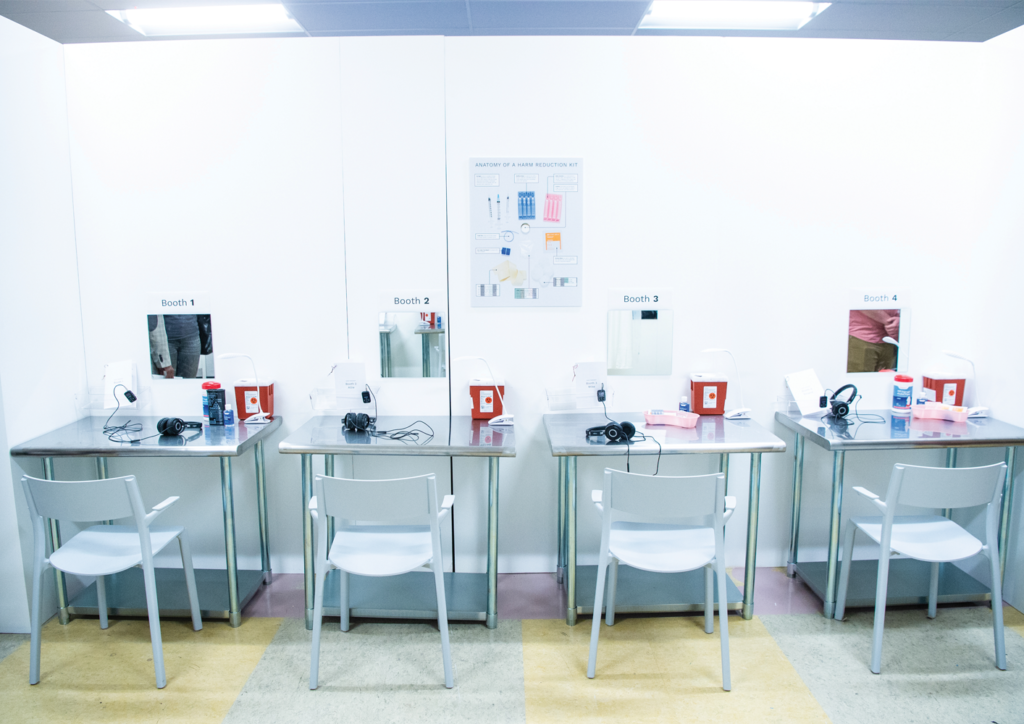
In addition to local advocacy work in San Francisco, GLIDE is a proud co-sponsor of State Senate Bill 57. Authored by Senator Scott Wiener, the measure would authorize overdose prevention sites in San Francisco, Oakland, and Los Angeles. “This bill is timely and urgent; we need to incorporate this proven, public health intervention into our city’s every-day continuum of services to prevent fatal and nonfatal drug overdose,” says Wes Saver, Senior Policy Manager at GLIDE. “Supervised consumption saves the lives of people who would otherwise die alone and provides low-threshold connections to social services, medical care, and assistance with recovery. As sites where the most stigmatized and marginalized members of our community are welcomed without judgment, overdose prevention programs offer people who have been silenced by shame a place where they can speak openly and honestly about their drug use and receive evidence-based, compassionate care.”
Community Building
The Center for Social Justice held gatherings to recognize the racial reckoning in our nation and to educate and influence individuals on social justice issues. In the past year, a series of virtual public events hosted by CSJ explored ways of curing anti-Blackness; fostered unity with Asian American, Native Hawaiian, and Pacific Islander communities facing hate crimes; and discussed the role of the Latinx community in advancing social justice. In addition, the Center held Advocacy 101 trainings throughout 2021 for community members and organizations, to empower and mobilize a new generation of social justice warriors.
Racial Justice & Reconciliation
New Bridges
New Bridges, a two-month course offered in summer 2020, brought together 34 registrants with diverse sexual orientations, racial and ethnic identities, and political perspectives. All sought to address the “isms” that divide people and to build alliances between those of different generations and cultural backgrounds. The group took a deep look at racism, sexism, homophobia and other systems of oppression in America and shared strategies for undoing them. New Bridges will welcome a new cohort in the summer of 2022.
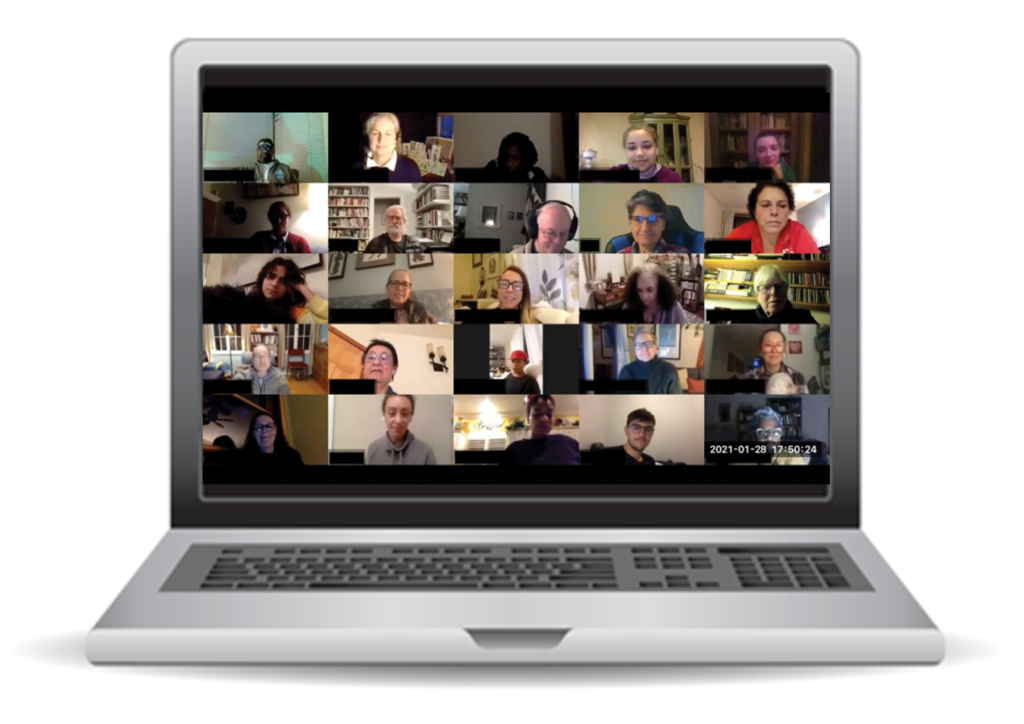
The program is directed by Isoke Femi, who says, “The basic assumption in New Bridges is that we did not sign up to be oppressors or oppressed. We got inducted and that system of induction is lost to our memory. We don’t remember when we resisted the belief that somebody else was inferior. So, this process is a process of uncovering what we consider to be the truth that all humans are born loving, zestful, curious, open and smart.”
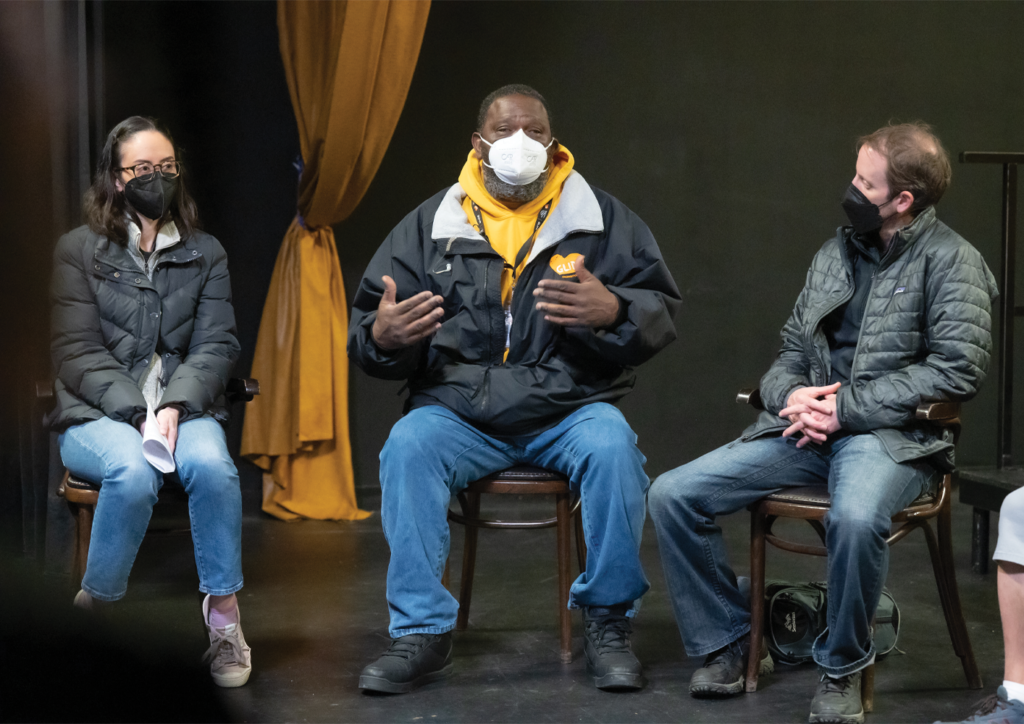
Healers at the Gate
GLIDE seeks to change the hearts and minds of those who exercise power in private and public systems, and build a deeper, more empathetic community that creates and sustains change. The Center for Social Justice offered several training programs in the past year for change-makers in influential healthcare, law enforcement and community organizations to raise their consciousness of racism and interrupt patterns of discrimination. The newest of these programs is a pilot for the University of California, San Francisco (UCSF) called Healers at the Gate (HATG).
UCSF made a commitment to address racial and social biases and partnered with GLIDE on the innovative program HATG. Drawing from the empathy-building and racial justice and reconciliation curriculum of CSJ’s New Bridges and Officer and a Mensch programs, HATG confronts racial and social bias in the healthcare system.
“UCSF has mastered healing the body, probably better than any institution on the planet,” says Rabbi Lezak, co-leader of Healers At The Gate. “But they are not experts at healing soulful wounds. At GLIDE, we are really good at this. We’re helping them hold space to heal those wounds.”
In 2021 alone, Rabbi Lezak and HATG co-leader Isoke Femi led 65 security supervisors, doctors, nurses, social workers, administrators and others on transformational pilgrimages that included walking tours of the Tenderloin, joining the meals line and eating alongside clients affected by homelessness, racism, substance use and mental challenges.
One UCSF physician said of the program, “It’s reinvigorated my awareness and empathy for individual situations and reinvigorated my desire to get the rest of my colleagues on board to give individual families as much care and compassion as possible.” The experiential learning initiative HATG continues in 2022 with several UCSF cohorts scheduled for the year.
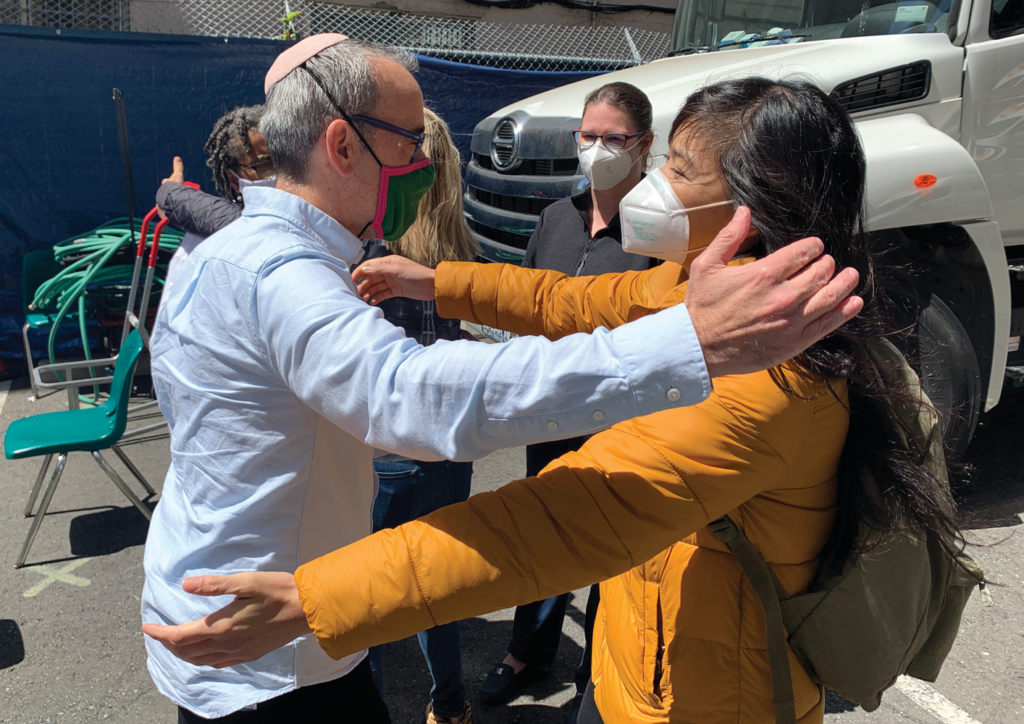
Visit the Center for Social Justice webpage to learn more about the Center’s work, impact, and calendar of upcoming events: glide.org/centerforsocialjustice.

